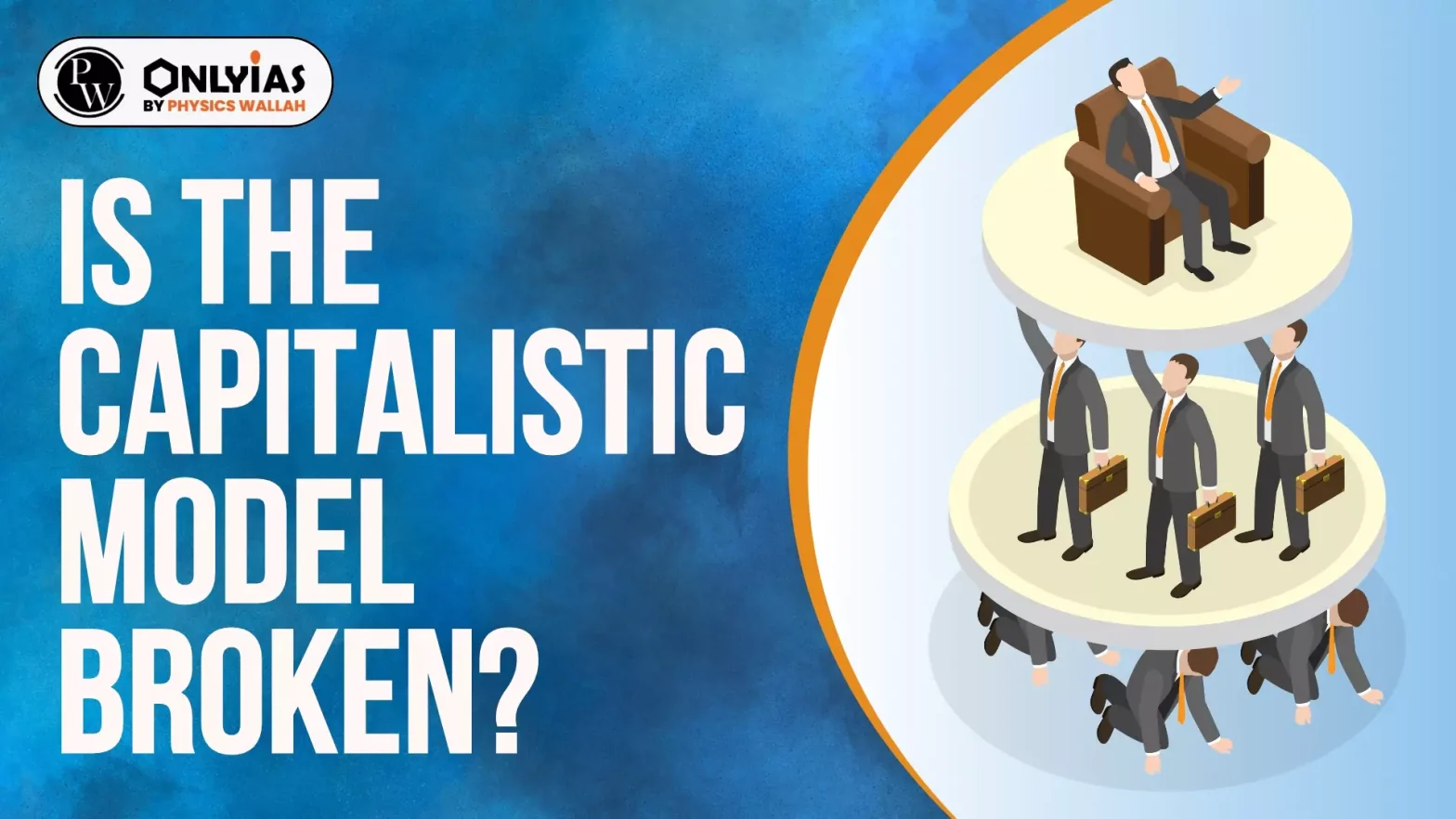The recent passing of Ratan Tata, a visionary business leader, evoked tributes from across India and the globe. His legacy sparked renewed reflections on the future of capitalism in India and the importance of ethical leadership in business.
Historical admiration for Tata Leaders
The recent outpouring of love for Ratan Tata is not new; the Tata group has garnered public admiration for nearly a century, reflecting the possible shortcomings of traditional capitalism.
- 1904: Upon Jamsetji Tata’s death, he was widely praised for his vision of a prosperous India, encapsulated in “Sarva Sama Hitam” (the betterment of all).
- 1932: Dorabji Tata was lauded for his commitment to philanthropy and social welfare after his passing.
- 1993: JRD Tata’s death brought widespread respect, remembered as a visionary leader who championed ethical business practices.
Enroll now for UPSC Online Course
What is Capitalism?
- Capitalism is an economic system where private individuals or businesses own and control the means of production and distribution of goods and services.
- It thrives on competition, profit maximisation, and minimal government intervention, allowing market forces to determine prices and resource allocation.
- Models of Capitalism:
- Shareholder Primacy Model (U.S.): The American model, led by Milton Friedman and the Chicago School, focuses on maximising shareholder returns.
- The 1919 Dodge v. Ford’s case legally reinforced that businesses must prioritise profits for shareholders.
- This principle has become a key foundation of U.S. corporate law.
- Stakeholder Model: In contrast to the U.S. model, companies in India like Hindustan Lever and the Tata Group have adopted a more inclusive approach, considering the interests of all stakeholders—employees, customers, and the broader community.
- For instance, when Tata Steel closed its plants in the UK, it provided “spot packages” offering immediate job opportunities to affected workers, showing a commitment to stakeholder welfare.
Alfred Marshall’s Vision for India
Alfred Marshall, a pioneering economist, emphasised India’s need for visionary leadership. He believed that India required “a score or two of men like Mr. Tata(Jamshedji)” to drive the nation’s progress.
- Learning from Japan: He admired the Japanese focus on technical and industrial realities, seeing it as a model that India could emulate to build a more industrially capable society.
- Critique of Political Discourse: He argued that political discourse should prioritise tangible progress, such as industrialization and economic growth, over ideological debates.
- Ethical Business Vision: The Tata Group’s motto, “Sarva Sama Hitam” (the good of all), as articulated by J.R.D. Tata, encapsulates the vision of holistic welfare and ethical business practices.
- This aligns with Marshall’s belief in leadership that promotes not only economic growth but also the well-being of society at large.
|
Lessons from Tata Group
- Leader of Leaders: Ratan Tata and the Tata Group have been instrumental in cultivating and mentoring future leaders like Nani Palkhivala, Darbari Seth, and Russi Mody.
- Through this leadership, the Tata Group empowered successive generations to take forward its values and vision
- Mentorship and Collaboration: This approach nurtured diverse perspectives and expertise, ensuring that the leadership team was robust and forward-thinking.
- Similar to Tata, Eiichi Shibusawa, known as the “father of Japanese capitalism,” inspired leaders like Honda, significantly contributing to Japan’s economic rise.
However India has seen only a few such leaders; now, there is a need to encourage and inspire more leaders to embrace ethical practices and social responsibility, fostering sustainable growth and a responsible industrial landscape.
Check Out UPSC CSE Books From PW Store
Living Machine Institute Research and Findings
- Living Elements: These are essential components of a healthy organisation such as culture, employee well-being, sustainability, and adaptability. These elements enhance a company’s vitality and resilience.
- Perpetuity Value: This refers to the long-term value generated by a company through its ability to consistently generate profits. It is closely linked to the health of its living elements.
- Impact on Enterprise Value: Healthy companies derive about 70% of their enterprise value from perpetuity value, highlighting the need to nurture living elements for sustained success.
- Companies that prioritised these aspects, like Asian Paints with its adaptability and ITC with diversification, thrived.
- In contrast, firms like Nokia failed due to a lack of perpetuity value.
Compassionate Capitalism
Compassionate capitalism is a business approach that emphasises social responsibility, ethical practices, and community well-being alongside profit generation.
- Example: Amul is a prime example, enhancing the income of dairy farmers while promoting rural development.
Mentions of Governance in Indian Tradition
- Ancient Texts: The teachings of Bhishma from the Mahabharata advocate for “Sarva Sama Hitam” (the good of all), while Janaka of Mithila emphasised prosperity and upliftment for everyone.
- Indian Scriptures: Phrases like “Lokah Samastah Sukhino Bhavantu” (may all beings be happy) highlight the cultural emphasis on collective well-being.
- Chanakya’s Arthashastra: Promotes the concept of “Yogakshema,” which focuses on welfare and prosperity.
- Leaders like Raja Raja Chola and Mahendra Varma Pallava were known for their philanthropy and fostering religious tolerance.
- Swami Vivekananda’s Vision during the 1893 visit to America, where he proposed a four-point plan for businessmen:
- Be self-aware
- Protect your resources
- Serve others before self
- Act with compassion
|
Enroll now for UPSC Online Classes
Conclusion
India can take the lead in promoting compassionate capitalism by creating a policy framework that encourages both compassionate practices and sound business purposes, ensuring that companies can thrive while contributing positively to society.
![]() 21 Oct 2024
21 Oct 2024
